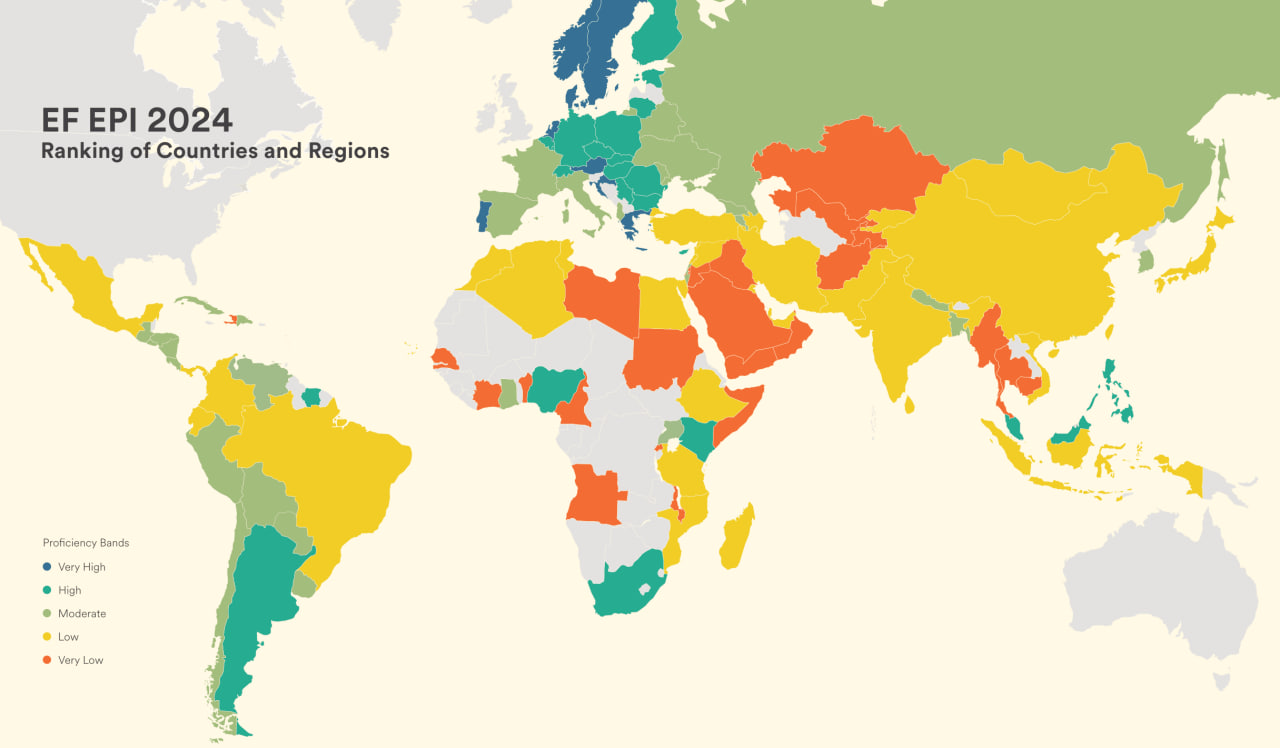According to data provided by EF’s CIS division, the highest English proficiency scores in Uzbekistan were recorded in Andijan city (461), followed by Tashkent city (457), and Fergana city (456). The analysis also showed that Tashkent region led with a three-year average score of 463. Meanwhile, lower English proficiency scores were observed in Jizzakh (384), Kashkadarya (404), and Khorezm (405) regions.
An interesting trend emerged among age groups: while English proficiency among students aged 21-25 improved, scores among 18-20-year-olds showed a decline. Dmitry Fedorov, EF’s CIS director, highlighted that this reversal is unusual, as the younger group has traditionally scored higher than older age brackets. This year, gender differences in proficiency also disappeared, marking the second time in Uzbekistan’s recorded history that men and women achieved equal scores in English proficiency.
Uzbekistan’s performance in the index, which it joined in 2018, has shown limited progress over recent years. The EF English Proficiency Index, which evaluates English language skills based on the EF Standard English Test (EF SET), draws on data from over 2.1 million participants worldwide. For 2024, the test sample included 7,339 participants from Uzbekistan aged 18 and older.
This year, the index found a global trend of declining English proficiency in 60% of the countries assessed. Despite a slight drop worldwide, regions such as the Middle East and Africa showed improvements, while English proficiency in other areas decreased. The report suggests that while demand for English remains high, educational and private sectors in some countries may be shifting their focus away from language skills.
EF Education First, founded in Sweden in 1965, operates globally, offering English language education and study-abroad programs through a network of schools and offices in 55 countries.






